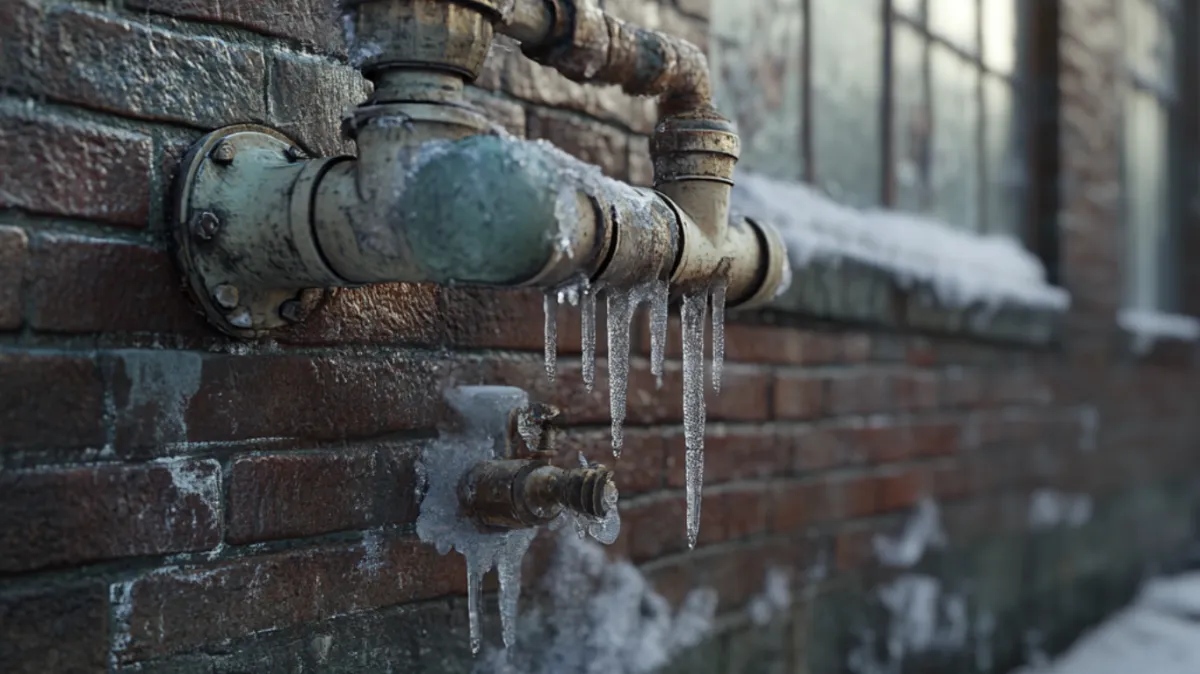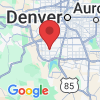
The Littleton Plumbing Journal
By Bravo Initiative, LLC

Protecting Your Home from Winter Plumbing Emergencies
Prevent Frozen Pipes: Avoid Costly Winter Emergencies
Thankfully, with a few preventive measures, you can protect your pipes from freezing and ensure your home stays safe throughout the winter.
How to Prevent Frozen Pipes
1. Insulate Pipes for Maximum Protection
Pipes in unheated or exposed areas, such as basements, crawl spaces, attics, garages, and exterior walls, are most at risk of freezing. Insulating these pipes is one of the most effective ways to prevent freezing:
Foam Insulation: Foam pipe sleeves are affordable, easy to install, and provide excellent thermal protection.
Heat Tape: Heat tape or cable can be wrapped around pipes to keep them warm during extremely cold weather.
Pipe Wraps: Additional materials like fiberglass or rubber pipe wraps offer enhanced insulation for pipes in extreme temperatures.
2. Seal Drafts to Block Cold Air
Cold drafts can quickly lower the temperature around your pipes, increasing the risk of freezing. To prevent this:
Seal Gaps: Use caulk or weather-stripping to seal gaps around doors, windows, and walls where cold air might seep in.
Inspect Pipe Entry Points: Check where pipes enter your home through walls or floors, and seal any cracks or openings to block drafts.
Install Insulated Covers: Use insulated covers to protect exterior wall pipes and prevent them from being exposed to freezing air.
3. Keep Water Flowing
Even a slow trickle of water can help prevent freezing by keeping the water in motion:
Drip Faucets: On particularly cold nights, leave one or two faucets dripping slightly, especially those connected to pipes in unheated areas. This relieves pressure in the pipes and helps prevent freezing.
Focus on Vulnerable Areas: Drip faucets connected to pipes along exterior walls or in unheated parts of your home to prioritize these high-risk areas.
4. Open Cabinets for Better Airflow
Pipes under sinks in kitchens and bathrooms are often located near exterior walls, making them more susceptible to freezing. Allowing warm air to circulate around these pipes can help:
Open Cabinet Doors: Leave cabinet doors open overnight to expose pipes to the warmth of your home’s heating system.
Clear the Space: Remove any stored items in these cabinets that could block airflow around the pipes.
Avoid Water Heater Failures: Keep Hot Water Flowing This Winter
With proper maintenance, you can ensure your water heater operates smoothly throughout the season.
Tips to Maintain Your Water Heater
1. Check the Temperature for Optimal Performance
Setting your water heater’s thermostat to the correct temperature ensures a balance between comfort, energy efficiency, and safety:
Recommended Setting: Keep the thermostat at 120°F (49°C). This prevents scalding risks, reduces energy costs, and ensures sufficient hot water supply.
Avoid Overheating: Higher temperatures waste energy and increase wear on the heating elements, shortening the lifespan of your unit.
2. Flush the Tank to Remove Sediment Buildup
Over time, minerals and debris settle at the bottom of your water heater tank, reducing its efficiency and heating capacity:
Why It Matters: Sediment buildup insulates the heating element, forcing the water heater to work harder, which can lead to overheating or failure.
Annual Flushing: Draining and flushing the tank annually removes this buildup, improving heating efficiency and extending the unit’s life.
DIY vs. Professional Help: While flushing is a task you can do yourself, a professional plumber can ensure the process is thorough and safe.
3. Inspect for Leaks and Rust
Small leaks or signs of rust can signal bigger problems brewing within your water heater:
Spot the Warning Signs: Look for water pooling around the base, rust-colored water from your taps, or corrosion on the exterior of the tank.
Act Quickly: Addressing leaks early can prevent costly water damage and the need for a full replacement.
Internal Rust: Rust inside the tank often indicates the anode rod, which prevents corrosion, needs replacing—a simple repair that can save the unit.
4. Schedule a Professional Check-Up for Peace of Mind
A professional inspection ensures your water heater is prepared to handle winter’s increased demands:
Comprehensive Assessment: A plumber will inspect the thermostat, heating elements, anode rod, and pressure relief valve to ensure all components are functioning properly.
Identify Hidden Issues: Professionals can detect potential problems that aren’t visible to the untrained eye, such as internal corrosion or sediment buildup in hard-to-reach areas.
Preventative Maintenance: Regular professional maintenance not only prevents emergencies but also extends the lifespan of your water heater, saving you money in the long run.
Combat Drain Blockages
Winter months often mean more cooking and gatherings, which can lead to increased strain on your kitchen and bathroom drains. Left untreated, clogs can cause backups or slow-draining sinks, especially when grease and debris harden in cold temperatures.
Preventative Measures for Drains:
Dispose of Grease Properly: Avoid pouring grease or cooking oil down the drain, as they solidify and cause clogs. Instead, dispose of them in the trash.
Use Drain Guards: Install drain catchers to prevent food scraps, hair, and other debris from entering your plumbing.
Flush Regularly: Pour hot water mixed with a mild detergent down your drains periodically to dissolve minor buildup.
Schedule a Professional Cleaning: A professional drain cleaning service can remove stubborn clogs and ensure smooth drainage all winter long.
Protect Outdoor Faucets and Hoses
Outdoor plumbing is particularly vulnerable to freezing temperatures, which can cause faucets and pipes to burst if not properly winterized.
Steps to Winterize Outdoor Faucets:
Shut Off the Water Supply: Turn off the water to outdoor faucets from inside your home.
Drain Remaining Water: Open the outdoor faucets to allow any water left inside to drain out.
Disconnect Hoses: Remove garden hoses and store them indoors to prevent freezing.
Install Faucet Covers: Use insulated covers to protect outdoor spigots from freezing temperatures.
Be Prepared with an Emergency Plumber
Even with preventative measures in place, winter plumbing emergencies can still happen. Having a reliable emergency plumber on call ensures that issues like burst pipes, water heater malfunctions, or severe drain blockages are addressed quickly and efficiently.
Why You Need an Emergency Plumber:
Quick Response: Professional plumbers are equipped to handle emergencies, minimizing damage to your home.
Expert Solutions: An experienced plumber can diagnose and fix the issue correctly the first time, saving you time and money.
Peace of Mind: Knowing help is just a phone call away reduces stress during plumbing emergencies.
Winter doesn’t have to mean plumbing headaches. With proper preparation and support from Bravo Initiative, LLC, you can protect your home from common winter plumbing emergencies. Contact us today to schedule a winter maintenance check and enjoy a worry-free season.

Schedule a Professional Inspection
Ready to schedule a professional inspection? Contact us today.

